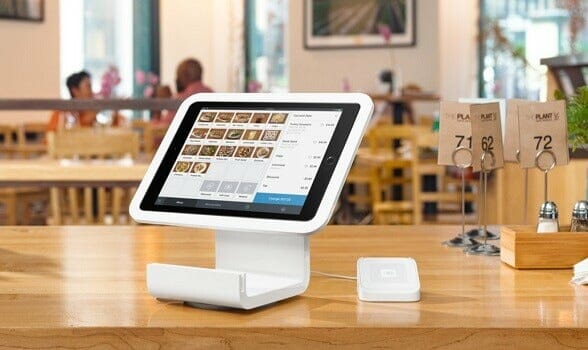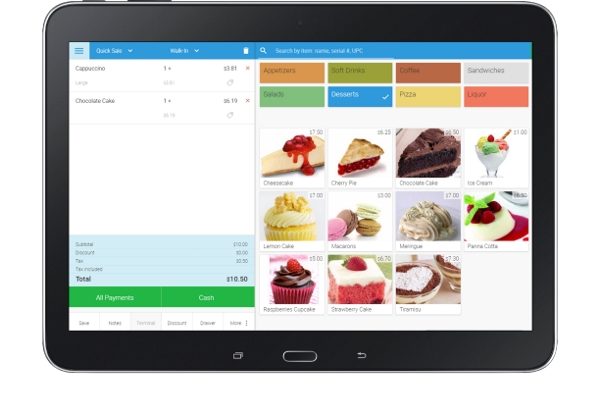Game-changing features in Restaurant POS Software for high-volume restaurants
Comprehending the Value of POS Software in Modern Retail Operations
In today's retail landscape, the duty of POS software has actually become progressively considerable. These systems have transformed from basic cash signs up to diverse tools that improve numerous elements of procedures. They not just improve deals yet likewise provide understandings that can form service methods. Understanding just how these systems impact client experience and stock management is crucial for any type of store seeking to remain competitive. The effects of these advancements call for additional expedition.
The Evolution of POS Software: From Deal Handling to Comprehensive Solutions

Enhancing Client Experience With Advanced POS Includes

Simplifying Supply Administration With Integrated POS Systems
Integrated POS systems play a vital function in streamlining supply administration by automating procedures that generally needed significant manual initiative. These systems make it possible for stores to track stock levels in genuine time, getting rid of disparities that frequently develop from manual supply counts. With features such as barcode scanning and automated stock replenishment notifies, companies can keep ideal supply degrees without overstocking or stockouts.Furthermore, integrated POS systems help with exact projecting by evaluating historical sales information, allowing retailers to make educated investing in decisions. This predictive capability helps services adapt to altering consumer demands and seasonal fads much more effectively.Additionally, the centralization of supply information across multiple sales networks boosts visibility, making it possible for sellers to manage their supply extra effectively. Eventually, the integration of POS systems into supply monitoring streamlines procedures, decreases human error, and adds to boosted earnings.
Real-Time Sales Tracking and Coverage for Informed Decision-Making

Exact inventory administration lays the foundation for effective sales tracking and reporting. Real-time sales tracking enables retailers to monitor sales efficiency as it occurs, supplying prompt insights right into client investing in patterns and fads. This ability allows businesses to react quickly to fluctuations sought after, enhancing supply degrees and decreasing overstock or stockouts.Moreover, incorporated POS systems assist in the generation of comprehensive reports, highlighting essential metrics such as sales by group, amount of time, and private items. Such coverage abilities equip stores to make data-driven decisions, determining successful strategies and locations requiring enhancement.
The Function of POS Software in Client Partnership Monitoring
POS software plays a necessary duty in improving consumer partnership administration by enabling retailers to implement customized advertising and marketing strategies. By examining client information, companies can tailor promos and communications to satisfy specific choices. Furthermore, these systems facilitate the growth of enhanced loyalty programs that urge repeat business and reinforce consumer interaction.
Personalized Marketing Techniques
As sellers increasingly look for to boost client commitment and involvement, customized advertising strategies have actually arised as an essential part of efficient client relationship monitoring. POS software plays an essential function in this procedure by accumulating and evaluating consumer data, enabling retailers to customize advertising and marketing efforts to individual preferences and purchasing habits. By leveraging understandings from acquisition backgrounds, stores can develop targeted promos and individualized interactions that reverberate with consumers, promoting a deeper link. Additionally, the assimilation of POS software with client connection management systems permits for smooth monitoring of customer communications, ensuring that marketing strategies remain pertinent and timely (Restaurant POS Software). This data-driven technique not just boosts consumer satisfaction yet additionally drives sales and motivates repeat service, solidifying the merchant's market position
Improved Loyalty Programs
Retailers are increasingly identifying the value of loyalty programs in promoting long-lasting client connections and enhancing total involvement. POS software plays a crucial function in the growth and monitoring of these programs, allowing retailers to track client acquisitions, choices, and behaviors successfully. By leveraging data analytics, services can create personalized rewards and motivations that reverberate with specific clients, thereby boosting participation in loyalty programs. Additionally, POS systems enable seamless integration with mobile apps and electronic platforms, promoting simple access to benefits and promos. This not only boosts customer fulfillment but likewise drives repeat organization. Ultimately, POS software equips merchants to grow much deeper links with their clients, transforming occasional consumers into devoted clients via targeted and purposeful engagement strategies.
Incorporating POS Systems With Shopping Platforms for Omnichannel Success
To accomplish true omnichannel success, smooth combination between point-of-sale (POS) systems and shopping systems is vital. This integration enables stores to merge their supply administration, ensuring that item accessibility is precisely reflected throughout both online and physical stores. Consumers take advantage of a cohesive shopping experience, where they can conveniently switch more helpful hints in between channels without encountering discrepancies.Furthermore, integrated systems assist in real-time information sharing, allowing businesses to examine consumer behavior and choices better. This data-driven approach permits sellers to tailor marketing methods and optimize supply levels, eventually enhancing client fulfillment and driving sales.Additionally, the capability to procedure transactions throughout systems simplifies procedures, reducing the danger of errors and boosting overall effectiveness. As retailers progressively take on omnichannel techniques, the combination of POS systems with e-commerce platforms continues to be an essential element in achieving sustainable development and preserving competitive advantage in the vibrant retail landscape.
Future Trends in POS Technology and Their Effect on Retail Operations
As retail procedures develop, future fads in POS innovation are set to improve the landscape substantially. The surge of cloud-based services, technologies in mobile POS systems, and the benefits of AI assimilation are among the key developments prepared for to improve efficiency and client experience. These advancements guarantee to improve processes and cultivate a more vibrant retail setting.
Cloud-Based Solutions Surge
With the increasing reliance on modern technology, cloud-based POS services are changing retail procedures by providing improved versatility and scalability. These systems allow merchants to access real-time information from anywhere, promoting far better decision-making and customer service. By leveraging cloud infrastructure, organizations can reduce in advance prices connected with software and hardware setups while guaranteeing smooth updates and upkeep. Additionally, cloud-based services support multi-location monitoring, permitting merchants to integrate supply and sales across numerous outlets effortlessly. This versatility is essential in today's fast-paced market, where customer choices change quickly. As more stores embrace official source these options, they can expect improved functional effectiveness and a more receptive technique to market needs, eventually improving customer satisfaction and commitment.
Mobile POS Innovations
The evolution of retail technology continues to shape procedures, specifically with the rise of mobile POS advancements. These systems allow sellers to refine deals anywhere within the store, enhancing customer engagement and simplifying checkout procedures. Mobile POS services improve inventory management by permitting immediate access to stock levels, assisting staff assist consumers extra successfully. On top of that, they promote tailored buying experiences with incorporated consumer data and commitment programs. As mobile devices come to be progressively innovative, retailers are embracing attributes such as contactless payments and digital invoices, furthermore maximizing the purchasing trip. The shift towards mobile POS not only improves operational efficiency but additionally aligns with the growing consumer preference for convenience, guaranteeing that merchants remain competitive in a quickly developing market.
AI Assimilation Advantages
AI integration represents a transformative leap in POS technology, offering sellers a myriad of benefits that boost operational performance and consumer experience. By leveraging machine discovering formulas, merchants can assess acquiring patterns and optimize inventory administration, minimizing waste and stockouts. Furthermore, AI-powered analytics provide personalized advertising referrals, enabling targeted promos that increase client involvement and link loyalty. Furthermore, chatbots and online assistants improve client service, allowing for quicker resolution of questions and boosting the general buying experience. Anticipating analytics can also forecast demand fads, enabling smarter staffing and resource allotment. Ultimately, the integration of AI in POS systems equips merchants to make data-driven choices, cultivating an affordable side in an ever-evolving retail landscape.
Frequently Asked Questions
What Are the Costs Associated With Executing POS Software?
The expenses connected with implementing POS software can consist of software licensing fees, equipment costs, installation costs, training prices, and recurring upkeep. Each factor contributes to the total financial investment needed for a successful execution.
Just How Can Little Retailers Benefit From POS Systems?
Small stores can profit from POS systems through boosted deal performance, structured inventory monitoring, and improved consumer insights. These systems make it possible for far better decision-making, eventually causing enhanced sales and consumer fulfillment in competitive markets.
What Equipment Is Needed for a POS System?
A normal POS system needs important equipment components, including a touchscreen screen, money cabinet, barcode scanner, invoice printer, and repayment terminal. These components function together to facilitate efficient transaction processing and inventory management for sellers.

Can POS Software Be Custom-made for Certain Retail Demands?
POS software can indeed be customized to meet certain retail demands. Restaurant POS Software. This adaptability permits organizations to customize attributes, user interfaces, and reporting devices, boosting functional performance and giving an extra tailored experience for both team and consumers
Just How Secure Is Consumer Data in POS Systems?
The safety and security of client data in POS systems varies widely. Numerous systems implement encryption, secure accessibility controls, and routine updates, however susceptabilities can still exist, demanding recurring caution and positive actions from merchants to shield sensitive information.